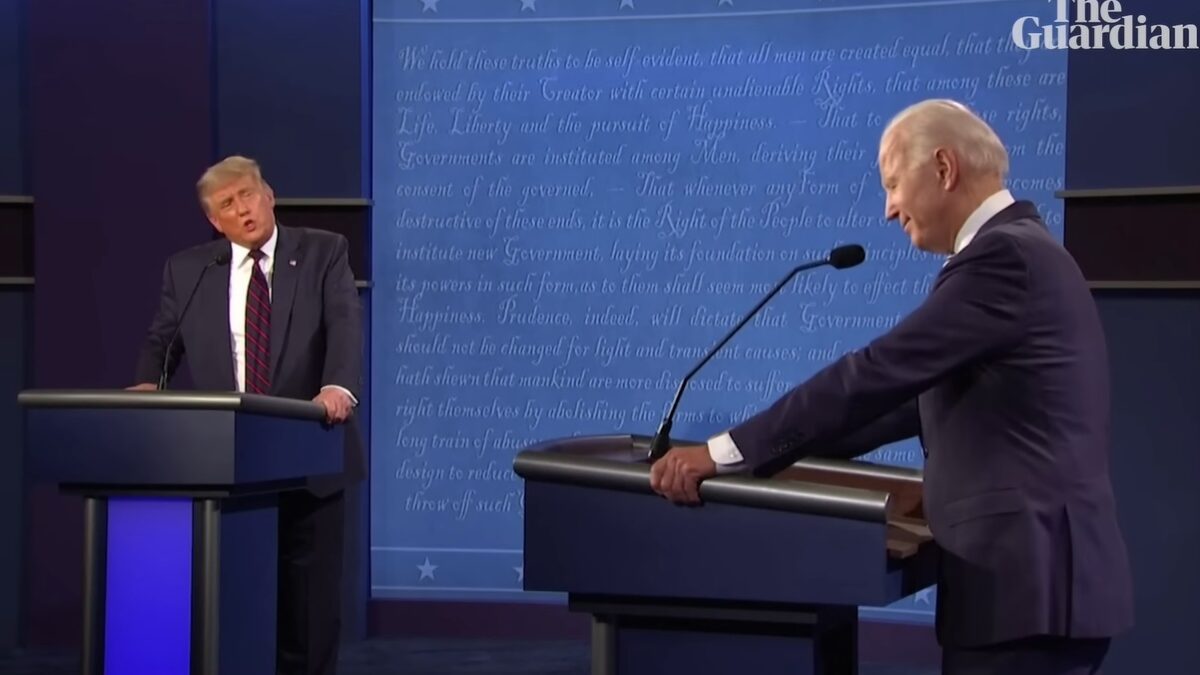“There are three infallible signs of the crank,” Joseph Bottum wrote. “The first is that he has a theory about the Jews. The second is that he has a theory about money. And the third is that he has a theory about Shakespeare.”
These are great signs of a crank, but I’d like to add a fourth: He thinks Jimmy Carter was a good president.
I thought of that when viewing this clip of Jon Stewart on Sunday spewing some 2006-level hatred of George W. Bush. It begins at the 4:30 mark (if you want to just see the part in question, check it out here):
Stewart was interviewed by his buddy and former colleague Mo Rocca of CBS. The interview is what you’d expect from a friend — zero tough questions and lots of puffery. Anyway, in the interview, Rocca notes that George W. Bush was going to be on CBS that morning as well. He asked him what he’d say to him if he could. He didn’t have much to say but added:
"Jimmy Carter's, like, 108, he's out in Africa, like, pulling Guinea worms out of children's feet trying to cure them. Bush is at home, 'Ah, bring me my fruit bowl, I'm doin' a still life. Heh heh heh.'"
I’m not even a George W. Bush fan, but this isn’t just petty and juvenile, it’s remarkably uninformed. This is, apparently, what happens when you get your news from Jon Stewart. Actually, even people who get their news and views from Jon Stewart probably fare better than Stewart. It was on his show, after all, that U2 front man Bono discussed Bush’s President’s Emergency Plan for AIDS Relief. He said, “We’re hoping very much that President Obama is going to follow through on what President Bush did.” Stewart cringed and Bono patted his hand and said, “I know that’s hard for you to accept.” He added, “It is amazing. People like John Kerry worked for this. Hillary Clinton, and eventually President Clinton did some extraordinary stuff renegotiating the prices of these very expensive drugs down. But George Bush kind of knocked it out of the park.”
After he left office, Bush set up a foundation that works on economic growth, education reform, global health, human freedom, military service and women’s initiatives.
You’re not going to see a ton of media coverage of these things, our media being what they are, but if you dig around you can find updates. There’s a list here. Such as that the Bushes “spent a week in Zambia and Botswana recently to promote the initiative and help renovate a health clinic in Kabwe, a city about two hours outside the Zambian capital of Lusaka” as part of the George W. Bush Institute’s cancer-fighting initiative, Pink Ribbon Red Ribbon. From the Dallas Morning News, we read, “Nationwide in Zambia, more than 22,000 women across Zambia have been screened, Bush said. Nearly 40% were HIV-positive about a third tested positive for pre-cancerous or cancerous cervical cells.”
Pink Ribbon Red Ribbon literature explains that it “works to combat cervical and breast cancer – two of the leading causes of cancer death in women – in developing nations in Sub-Saharan Africa and Latin America.”
In any case, while no one disputes that Jimmy Carter is a better ex-president than president — it would be impossible to be otherwise — his ex-presidency hasn’t been known for much success either. Charles Krauthammer, who actually worked for him in 1980, says he’s “the worst ex-president ever.”
Carter received praise for his well-publicized work with Habitat for Humanity (at least until he took his work to Communist Nicaragua and posed with Sandinista dictator Daniel Ortega). Then he started a political activism center called The Carter Center, which gives him a role to play in international affairs. That is where things have not gone so well. His admiring biographer Douglas Brinkley wrote about how during the Kuwaiti invasion, Carter wrote a letter to the heads of state on the U.N. Security Council that:
urged these influential world leaders to abandon U.S. leadership and instead give “unequivocal support to an Arab League effort, without any restraints on their agenda.” If this were allowed to occur, Carter believed, an Arab solution would not only force Iraq to leave Kuwait but at long last also force Israel to withdraw from the occupied territories.
Only Cuba and Yemen agreed with him. The NSA head said Carter’s behavior was a violation of the Logan Act prohibiting diplomacy by private citizens. He kept up his lobbying with foreign nations, asking them to cut ties with the U.S. It’s perhaps not as surprising as it should be to read that former presidential staff have called him treasonous.
Carter shows up in many foreign conflicts, much in the manner that a football player might throw himself on top of the scrum long after the real play was made. The important thing is that it shows your jersey on TV, right? As Joshua Muravchik writes:
His arrival in Yugoslavia during the Bosnia war in the mid-1990’s is memorable mostly for the praise he garnered from president Slobodan Milosevic, who hailed him as “the first American” in a while to have “understood the situation in our country,” as well as for Carter’s erroneous forecast that “the prospect for ending the crisis through [U.S.] military means” was “almost hopeless.” (A NATO bombing campaign some months later brought it to an abrupt halt.) A similar appearance in Haiti was notable for his approval of the human-rights record of the military strongman Raoul Cedras, reminiscent of his encomiums to Tito, Gierek, and Ceausescu.
Steven Hayward notes “the way he has meddled ruinously in the foreign affairs of the nation, especially North Korea.” People may not remember how Carter’s visits there helped legitimize the barbaric regime and created conditions under which North Korea was able to perpetuate a clandestine nuclear weapons program all while claiming to have ceased it. For years, the U.S. and allies provided oil and benefits to North Korea under the false idea that the dictatorship had ceased its program. When the ruse was up, Jimmy Carter wrote a letter lambasting these countries instead of North Korea. Full details here.
In later years he’s turned to criticisms of Catholics and Jews, as cranks do. But that’s for a separate discussion.
It’s true that the Carter Center is doing some work on Guinea worm eradication. Bully for them. I’m sure that’s some comfort to the 25 million North Koreans living in absolute hellish circumstances. On the one hand, we have helping dictators, building some homes, maybe a little betrayal of the American people here and there, Guinea worm removal, giving tons of money to Democrats, and, oh yeah, helping the worst regime on earth perpetuate its horrific conditions. On the other you have George W. Bush’s work with wounded veterans, saving lives in Africa, education reform, and some damned fine painting, actually. I’ll take the latter, thanks.
If you’re Jon Stewart, still stewing in some unhealthy levels of hatred, your mileage may vary.







